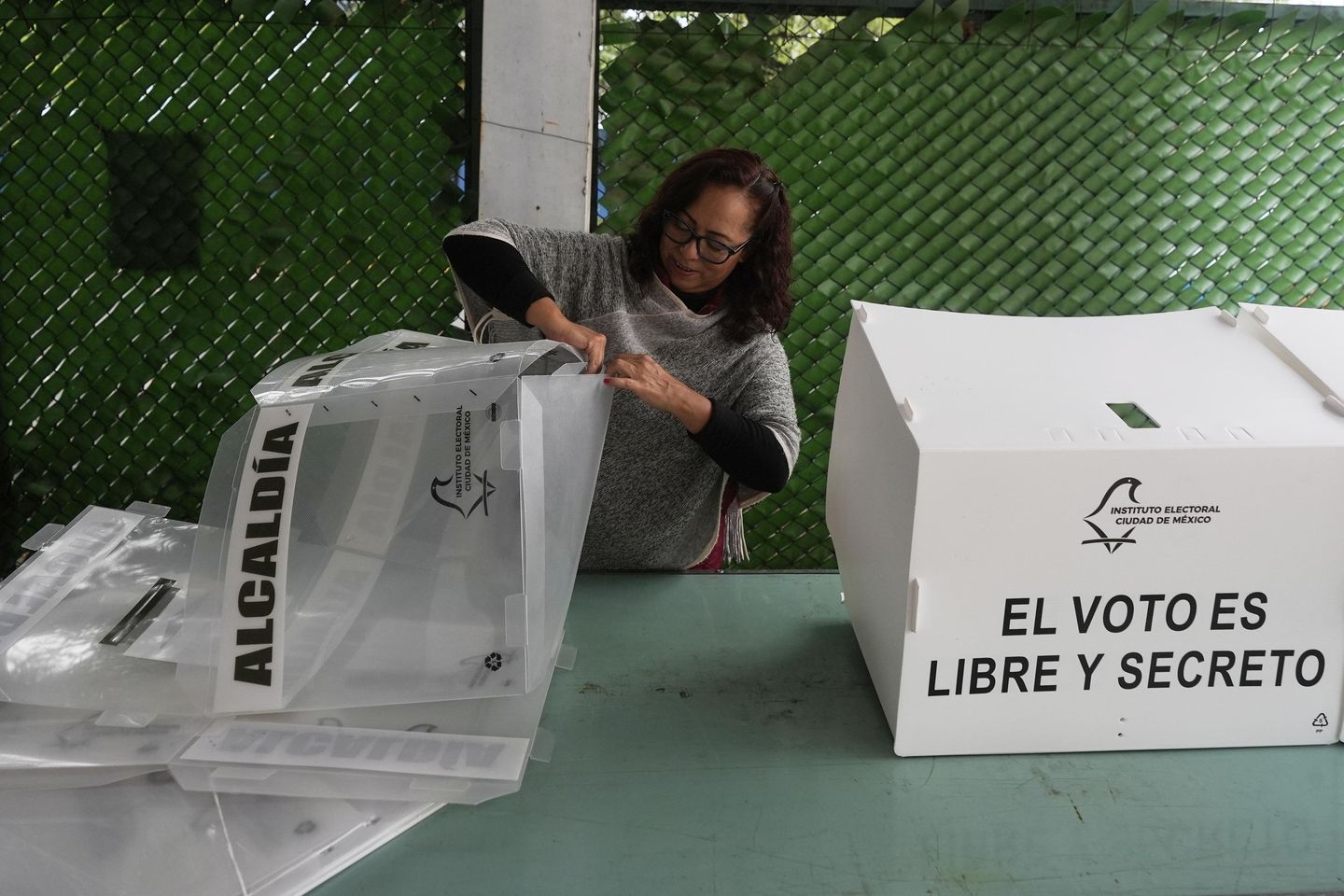
MEXICO CITY — Mexico held its first-ever judicial elections on Sunday, stirring controversy and sowing confusion among voters still struggling to understand a process set to transform the country’s court system.
The election appeared to get off to a slow start.
Some voting centers in Mexico City, the Gulf coast state of Veracruz and the southern state of Chiapas opened with no one or only a handful of people waiting to vote. Experts had warned that turnout in the historic elections could be extremely low, due to the mindboggling array of unfamiliar choices and the fact that voting for judges is entirely new.
Mexico’s ruling party, Morena, overhauled the court system late last year, fueling protests and criticism that the reform is an attempt by those in power to seize on their political popularity to gain control of the branch of government until now out of their reach.
“It’s an effort to control the court system, which has been a sort of thorn in the side” of those in power, said Laurence Patin, director of the legal organization Juicio Justo in Mexico. “But it’s a counter-balance, which exists in every healthy democracy.”
Now, instead of judges being appointed on a system of merit and experience, Mexican voters will choose between some 7,700 candidates vying for more than 2,600 judicial positions.
In a middle-class Mexico City neighborhood, poll workers organized the color-coded ballots by federal and local contests. Four people were waiting to vote when the location opened.
Esteban Hernández, a 31-year-old veterinary student, said he didn’t agree with electing judges and doesn’t support Morena, but came to vote because “since there isn’t much participation, my vote will count more.”
He had studied the candidates on a website listing their qualifications and decided to pick those who had doctorates.
At the same polling place, Octavio Arellano, a 67-year-old consultant, quickly made his selections, referring to handwritten notes he carried with him. He’s also a critic of the process, but voted for members of the Supreme Court, as well as disciplinary and electoral tribunals, to “influence the most important” races. He said he spoiled his votes for the local judicial positions.
Mexico President Claudia Sheinbaum and party allies have said the elections are a way to purge the court system of corruption in a country that has long faced high levels of impunity. Critics say the vote could damage democracy and open the judicial system up further to organized crime and other corrupt actors hoping to get a grip on power.
The process however had raised concerns.
Civil society organizations like Defensorxs have raised red flags about a range of candidates running for election, including lawyers who represented some of Mexico’s most feared cartel leaders and local officials who were forced to resign from their positions due to corruption scandals.
Also among those putting themselves forward are ex-convicts imprisoned for years for drug-trafficking to the United States and a slate of candidates with ties to a religious group whose spiritual leader is behind bars in California after pleading guilty to sexually abusing minors.
At the same time, voters have been plagued by confusion over a voting process that Mr. Patin warned has been hastily thrown together. Voters often have to choose from sometimes more than a hundred candidates who are not permitted to clearly voice their party affiliation or carry out widespread campaigning.
As a result, many Mexicans say they’re going into the vote blind. Mexico’s electoral authority has investigated voter guides being handed out across the country, in what critics say is a blatant move by political parties to stack the vote in their favor.
“Political parties weren’t just going to sit with their arms crossed,” Mr. Patin said.












